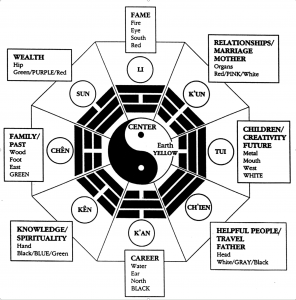Definition Assignment
Introduction
For the assignment, students have to select a jargon from their field and provide 3 definitions: a parenthetical definition, a sentence definition and an expanded definition. The term selected here is from the Chinese discpline: “Dao” (or Tao). “Dao” is a very abstracted term, but it is very important in Chinese culture.
Intended audience:
Students who major in Chinese will encounter this term some point in their learning. The meaning behind the term as well as the philosphical knowledge associated with the term were treated as the essence of the Chinese culture.
Parathetical Definition:
“Dao” is known as an attitude (a kind of mindset) towards life , its literal meaning refers to “way or road”.
Sentence Definition:
The term “Dao” refers to the ultimate attitude that ancient Chinese have towards life, ancient Chinese people believe that the meaning of life is to pursue a goal that is unique to them.
Expanded Definition
What is “Dao”?
“Dao” can be interpreted as the “meaning of someone’s life”, or it could be interpreted as “kindness in someone’s heart”, or it could be interpreted as moralism. In Merriam Webster’s dictionary, “Dao” is defined as “ the unconditional and unknowable source and guiding principle of all reality as connived by Taoist” or “the process of nature by which all things change and which is to be followed for a life of harmony” (Merriam-Webster). The dictionary’s explaination is correct, but as Daosim would suggest, everyone could have their own definition for their “Dao”, because it is their “way” of life.
How did it develop?
The concept of “Dao” was developed by Taoist. Taoist is a Chinese philosopher Lao Tzu (c.500 BCE), who introduced Taosim. According to Emily Mark: “Taosim emphasizes doing what is natural and going with the follow in accordance with the Tao, a cosmic force which follows through all things and binds and releases them” (Mark, n.p). However, this statement by Mark is only one of the beliefs people have for Daosim. In Lao Tzu’s book, and his followers’ writings, Daoism is not only about not doing anything and let things be. Rather, it is more about accepting all the things (good and bad) that happen when we did all we can. As long as the person is still chasing his or her “Dao”, then his or her behaviour should be directed by the “Dao”, and will not change in the face of external temptation.
Example
An abstract term such as “Dao” can be understood with examples. No one will know their “Dao”in the beginning, people will know their “Dao”after they haven gone through dramatic changes in their lives. For example, when one pursues money, and finds that money become useless when the people that he/she loves passed away, then he/she realizes what’s more important. As figure 1 indicate, nothing should be overly pursued, when one breaks the balance, either this person will become madness or this person will understand what to give up and what to pursue.

Figure 1. Nouah’s Ark. https://www.nouahsark.com/img/religions/what_is_taoism_01.php
What’s the relationship between “Dao” and Chinese Philosphy?
In Chinese philosphy : “confucianism, taoism and Buddhism were the main philophies and religions of ancient China, which have inidvidually and collectively influenced and collectively influenced ancient and modern Chinese society” (National Geographic, n.p). If confucianism represents the political aspects of Chinese philosophy, then taoism represents spirutual aspects of Chinese philosphy. It concerns about how people live, what they learn from the nature and their experiences. Ancient Chinese believe that people will eventually find their way of life after they have much life experiences. If one day people realize that one does not need money or fame, and there’s more important thing to do in their life, they will walk their way and to be truly satisfied.
Works Cited:
Mark, E. Taoism. https://www.worldhistory.org/Taoism/. Accessed on Sept30, 2021.
Merriam-Webster. “Tao”. In Merriam-Webster.com dictionary. Retrieved Sept30, 2021, from https://www.merriam-webster.com/dictionary/Tao
National Geographic. “Chinese Religions and Philosphies”. https://www.nationalgeographic.org/article/chinese-religions-and-philosophies/.Accessed on Oct 8, 2021.
Leave a Reply